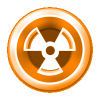Showview
showview <x> <y> <z> <angle> <horiz> <sector> <scrn_x1> <scrn_y1> <scrn_x2> <scrn_y2>
showviewunbiased <x> <y> <z> <angle> <horiz> <sector> <scrn_x1> <scrn_y1> <scrn_x2> <scrn_y2>
Displays on-screen the view from in-game coordinates (<x>,<y>,<z>), looking at angle <angle> and with z-angle (up and down) <horiz>, between screen coordinates (<scrn_x1>,<scrn_y1>) and (<scrn_x2>,<scrn_y2>).
<sector> is the sector that contains the in-game coordinates.
The on-screen coordinates can be in any shape; they do not have to be in the same x-y ratio as the screen resolution. However, the aspect ratio at which the scene is drawn in the sub-viewport is unspecified and may differ between renderers and settings of r_usenewaspect. (For example, different ratios may result in warping or graphical glitches in the view.) Their permissible range is 0 to 319 for the screen x coordinate, and 0 to 199 for the screen y coordinate, both inclusive. These normalized coordinates are transformed to actual screen coordinates depending on the command used:
For showview, the scaling biases them towards zero, so that the whole screen can never be covered in any other resolution than 320x200:
real_scrn_x = round_towards_zero((<scrn_x>*xdim)/320) real_scrn_y = round_towards_zero((<scrn_y>*ydim)/200)
On the other hand, showviewunbiased transforms them such that the greatest permissible normalized value will be mapped to the greates actual screen coordinate:
real_scrn_x = round_towards_zero((<scrn_x>*(xdim-1))/319) real_scrn_y = round_towards_zero((<scrn_y>*(ydim-1))/199)
The resulting coordinates are 0-based with the origin being the upper left corner and denote an inclusive range of pixels in the x or y direction in the classic renderer.
For example, the command
showview x y z a h s 0 0 31 0
draws the view in a one-pixel high line covering about one tenth of the screen length from the left, and
showview x y z a h s 0 0 0 19
a one-pixel wide line covering approximately one tenth of the height from above.
The command
showview x y z a h s 0 0 0 0
would use exactly the upper left pixel in the classic renderer. (Polymost currently behaves differently, but this may be subject to change.)
Keep in mind when using this command that the game will have to completely redraw everything from the specified perspective, which can produce a sizeable framerate hit.
Realistic examples
The correct way of drawing to the whose screen is
showviewunbiased x y z a h s 0 0 319 199
This will embed a small version of the player's view near the top left corner of the screen:
getplayer[THISACTOR].posx x getplayer[THISACTOR].posy y getplayer[THISACTOR].posz z getplayer[THISACTOR].ang ang getplayer[THISACTOR].horiz horiz getplayer[THISACTOR].horizoff temp addvarvar horiz temp updatesectorz x y z sect showviewunbiased x y z ang horiz sect 16 8 56 39
This lengthy example will create a "gun camera" that shows a closeup view of wherever the player is currently aiming. In addition to showview and basic EDuke commands, it also uses updatesectorz, myos, and hitscan, as well as the event EVENT_DISPLAYREST.
gamevar sv_scrnx1 0 0
gamevar sv_scrny1 0 0
gamevar sv_scrnx2 0 0
gamevar sv_scrny2 0 0
gamevar sv_sect 0 0
gamevar sv_temp1 0 0
gamevar sv_temp2 0 0
gamevar sv_x 0 0
gamevar sv_y 0 0
gamevar sv_z 0 0
gamevar sv_hitx 0 0
gamevar sv_hity 0 0
gamevar sv_hitz 0 0
gamevar sv_cos 0 0
gamevar sv_sin 0 0
gamevar sv_ang 0 0
gamevar sv_horiz 0 0
state sv_playerview
getplayer[THISACTOR].posx sv_x
getplayer[THISACTOR].posy sv_y
getplayer[THISACTOR].posz sv_z
subvar sv_z 512
getplayer[THISACTOR].cursectnum sv_sect
ends
onevent EVENT_DISPLAYREST {
// get coords
setvar sv_scrnx1 23
setvar sv_scrny1 16
setvarvar sv_scrnx2 sv_scrnx1 addvar sv_scrnx2 50
setvarvar sv_scrny2 sv_scrny1 addvar sv_scrny2 47 // 31 for correct ratio
// display frame
setvarvar sv_temp1 sv_scrnx1 subvar sv_temp1 7
setvarvar sv_temp2 sv_scrny1 subvar sv_temp2 8
myos sv_temp1 sv_temp2 SCREENBREAK6 0 16
// do the hitscan
getplayer[THISACTOR].ang sv_ang
getplayer[THISACTOR].horiz sv_horiz
getplayer[THISACTOR].posx sv_hitx
getplayer[THISACTOR].posy sv_hity
getplayer[THISACTOR].posz sv_hitz
getplayer[THISACTOR].cursectnum sv_temp2
subvar sv_hitz 512
cos sv_cos sv_ang
sin sv_sin sv_ang
setvar sv_temp1 100
subvarvar sv_temp1 sv_horiz
getplayer[THISACTOR].horizoff sv_horiz
subvarvar sv_temp1 sv_horiz
shiftvarl sv_temp1 11
hitscan sv_hitx sv_hity sv_hitz sv_temp2 sv_cos sv_sin sv_temp1 sv_temp2 sv_temp1 sv_temp1 sv_hitx sv_hity sv_hitz CLIPMASK1
getplayer[THISACTOR].horiz sv_temp1
getplayer[THISACTOR].horizoff sv_horiz
addvarvar sv_horiz sv_temp1
// get distance between player and hitscan location
getplayer[THISACTOR].posx sv_x
getplayer[THISACTOR].posy sv_y
getplayer[THISACTOR].posz sv_z
subvarvar sv_x sv_hitx
mulvarvar sv_x sv_x
subvarvar sv_y sv_hity
mulvarvar sv_y sv_y
addvarvar sv_x sv_y
sqrt sv_x sv_x
ifvarl sv_x 768 state sv_playerview // if dist < 768, just show the player's view
else { // otherwise, move camera 768 units back from hitscan location on x-y plane and adjust z accordingly
subvarvar sv_z sv_hitz
mulvar sv_z 768
ifvare sv_x 0 setvar sv_x 1
divvarvar sv_z sv_x
addvarvar sv_z sv_hitz
setvarvar sv_x sv_hitx
setvarvar sv_y sv_hity
mulvar sv_cos -768
mulvar sv_sin -768
divvar sv_cos 16384
divvar sv_sin 16384
addvarvar sv_x sv_cos
addvarvar sv_y sv_sin
subvar sv_z 512
// if the calculated position isn't in a sector (this does happen) then just show the player's view
updatesectorz sv_x sv_y sv_z sv_sect
ifvare sv_sect -1 state sv_playerview
// make sure the camera can still see the hitscan location
cansee sv_x sv_y sv_z sv_sect sv_hitx sv_hity sv_hitz sv_temp2 sv_temp1
ifvare sv_temp1 0 state sv_playerview
}
// check again to make sure we're in a sector
ifvarn sv_sect -1 {
// x y z ang horiz sect scrn_x scrn_y scrn_x2 scrn_y2
showviewunbiased sv_x sv_y sv_z sv_ang sv_horiz sv_sect sv_scrnx1 sv_scrny1 sv_scrnx2 sv_scrny2
}
// display crosshair
addvarvar sv_scrnx1 sv_scrnx2 divvar sv_scrnx1 2
addvarvar sv_scrny1 sv_scrny2 divvar sv_scrny1 2
myos sv_scrnx1 sv_scrny1 CROSSHAIR 0 0
}
endevent
